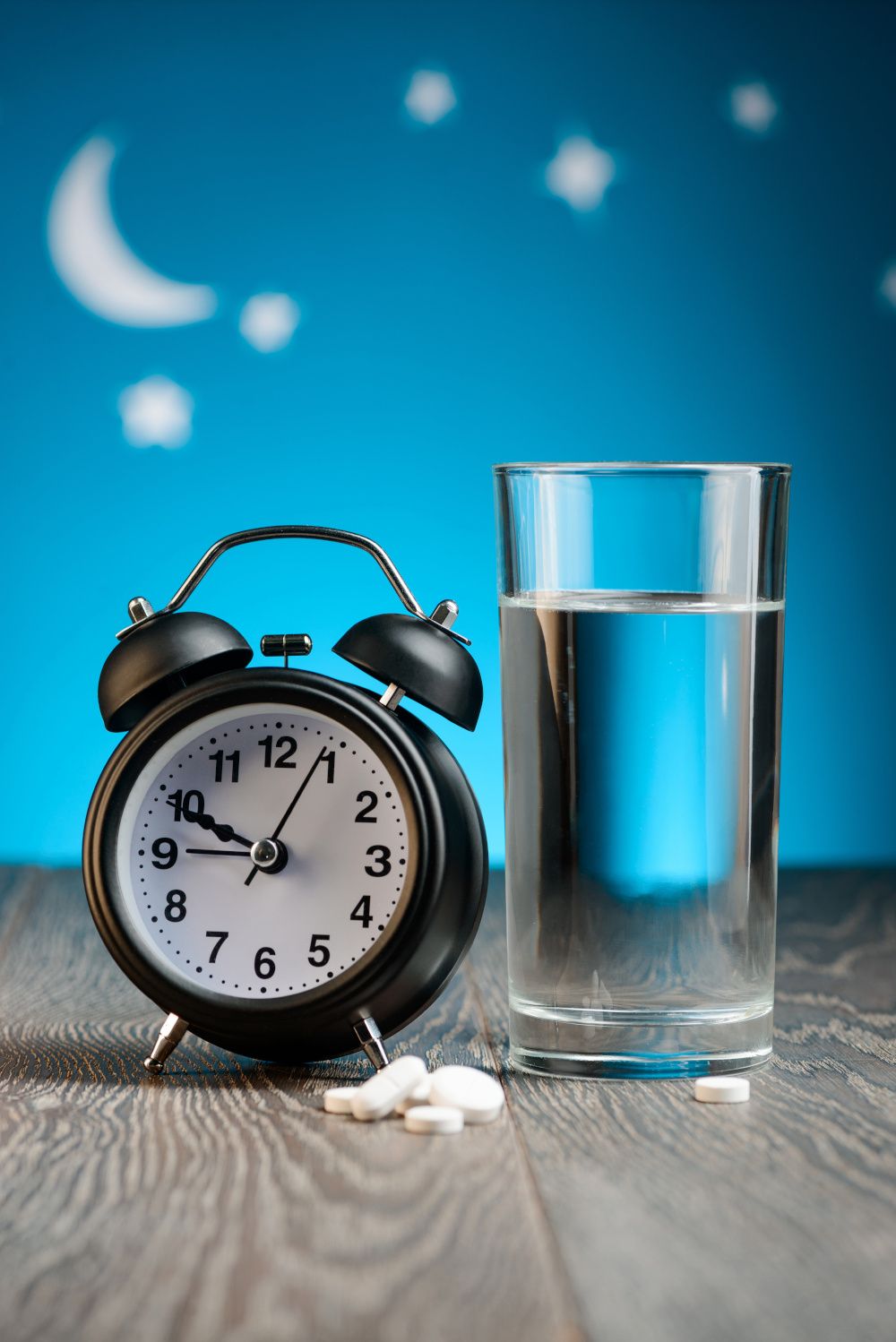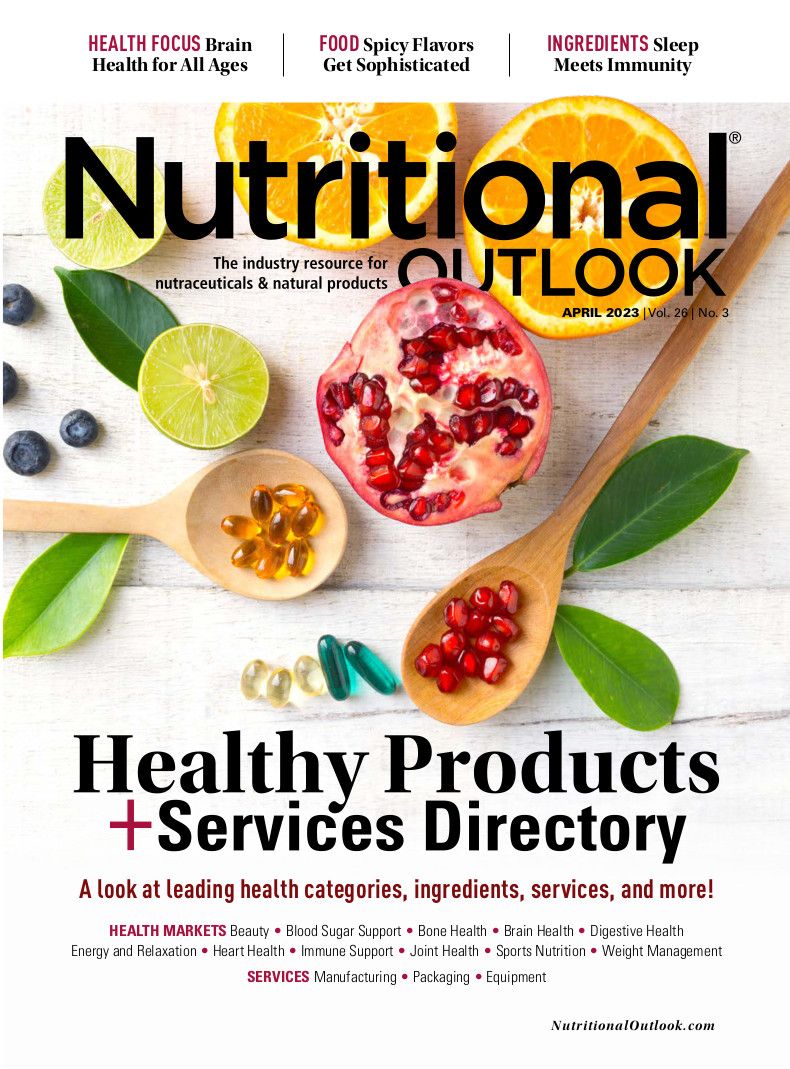Having trouble getting a good night’s rest? You’re not alone. Overloaded schedules, increased screen time, and growing stress and anxiety have all amounted to one fact: most of us aren’t getting the quality or the quantity of sleep we should be.
“We know that millions of Americans have such a hard time both falling asleep and staying asleep, and just getting high-quality sleep. It’s not just about the number of hours that you’re getting—we should be aiming for around eight hours per night—but it’s really about the quality of that sleep,” said Erin Stokes, ND, naturopathic doctor and medical director at MegaFood, whom I interviewed at the Natural Products Expo West trade show in Anaheim, CA, in March.
Unfortunately, the impact of poor sleep on the body is widespread, starting with the immune system. “There’s a lot of scientific evidence that shows that when you’re not getting enough sleep, it impacts your immune system,” Stokes said.
“Sleep and immune health are closely linked, as the body’s immune system is known to be particularly active during sleep,” explains Vishal Shah, whole-time director at health and wellness ingredient supplier Nutriventia (Mumbai, India). “Additionally, sleep is restorative, and a lack of sleep or poor sleep quality can weaken the immune system.”
Learn more! Watch our webcast!
"Immune + Sleep Health: The New Power Couple"
Hear experts discuss product trends in this emerging category and which ingredients are most promising in immune-and-sleep combos.
Watch it live or on demand for free! https://www.nutritionaloutlook.com/no_w/immune-and-sleep
Poor sleep also impacts the body’s stress response, which can then affect how the immune system can respond. When we aren’t sleeping well, “one of the things that’s been shown is that our stress response shifts, which then also impacts our immune response,” Stokes explained. “So it’s really a cascade. When you don’t get enough sleep, you don’t have the same stress resilience, so when stressors come your way, you’re more likely to react in a whole cascade of stress hormones, which is ultimately hard on your immune system.”
Consumers Seek Sleep Solutions
Coming out of the pandemic, we know that consumers are much more interested in purchasing both sleep-health and immune-health products. Data on U.S. mainstream supplement-ingredient sales shared late last year by market researcher SPINS (Chicago) showed that sales in the cold-and-flu category grew 8%, and sales in the sleep category grew 3%, in the 52 weeks ending October 30, 2022.
Today, CPG brands are offering products that combine both immune and sleep benefits. Examples include the ZzzQuil Nighttime Sleep Aid line from the makers of NyQuil, and the Sleep + Immune Support line from Zicam.
Francis Lau, PhD, FACN, formerly the director of scientific affairs at supplements brand Olly, said in March, “We are seeing more brands launch dual-benefit supplements that support both sleep and immune health as consumers realize the crucial role of sleep in maintaining a healthy immune system.” Olly, for its part, is actively working through Instagram and TikTok channels to educate its customers on the importance of sleep. “Olly believes that good sleep is crucial for both physical and mental well-being, and this includes immune health,” Lau said. “We’re currently building out our website to include educational content on sleep that is fun and approachable. No boring science lectures here!”
Key Players
As wellness brands take the sleep-and-immune-health message mainstream, the consumer base for these products is growing. Brands and formulators are also using trending delivery formats like gummies to entice them.
Ingredient suppliers are also investing in research and development on sleep and immune health ingredients. “Suppliers are increasingly looking to study and supply ingredients that can support both sleep and immune health,” says Shah. “These ingredients may include natural extracts, phytonutrients, and minerals that have been shown to have positive effects on both sleep quality and immune function.”
“In terms of ingredients,” Lau added, “many brands are incorporating melatonin for sleep support and staples such as vitamin C and zinc for immune health. However, there is also ingredient variety. For example, Olly’s Immunity Sleep gummy includes L-theanine and lemon balm on top of melatonin to help support restful sleep, and we also include vitamin C, zinc, selenium, elderberry, and echinacea for expertly-blended immune support.”
Another strong addition would be ashwagandha (Withania somnifera). This adaptogenic herb is already known for its stress-relieving effects, which can subsequently aid sleep health and immunity, Shah says. Even more significantly, he says, “Ashwagandha has also been studied in sleep and has been shown to improve both sleep quality and sleep-onset latency and normalize sleep patterns.” Not only that, he says, “Research has also demonstrated ashwagandha’s ability to modulate and activate the immune system.”
“Similarly,” he adds, “melatonin is known to improve sleep quality and reduce sleep-onset latency, and its antioxidant and anti-inflammatory properties have been shown to protect the immune system and modulate immune function.”
Other lesser-known ingredients also show strong promise in the sleep-and-immune market, Lau said. L-theanine and lemon balm are two of them. He also said that “saffron extract, acerola extract, GABA, and palmitoylethanolamide can be used to support sleep and immunity.” Other “traditionally used” herbal ingredients are also contenders, but he noted that these must be provided in “clinically supported dosages” to back efficacy and product claims.
Holistic Health
Stokes at MegaFood said that it is also the responsibility of the wellness industry to reinforce the message that supplements play an important role in “sleep hygiene,” but that other lifestyle changes also matter.
“Sleep hygiene is a series of habits and behaviors in those hours leading up to sleep,” she said. She advised that if people want to sleep better, they should try to stay off their screens before bed, take a walk in the morning to kickstart the body’s circadian rhythm, avoid eating heavy meals before bed, and avoid coffee and alcohol consumption late in the day, which can affect REM sleep.
Fortunately, consumers seem to be in a holistic-health mindset post-pandemic. “I think what’s happening now is that people are expanding…that view of immune health to something broader and something more long-term,” Stokes said. “And that really does include the connection between immune health and sleep, and immune health and stress, and how it’s all interconnected…We’re looking at more of the long-term as opposed to the short-term…Now, it’s a broader, more holistic perspective…”
Another factor that could motivate more consumers to look for combination sleep-and-immune supplements? Inflation. “With the tough economy, many consumers are facing economic hardships, so they’re really looking for extra value in their supplements,” Lau said. “Consumers are also interested in boosting their immune systems, especially during the height of cold and flu season. A sleep + immune supplement offers two sought-after benefits in one product, which makes sense from a convenience and economical standpoint.”


